The automotive landscape is rich with options, but few comparisons are as intriguing as that of the Audi Q3 and the SEAT Ateca. While both models belong to the ever-popular SUV category, they deliver distinct driving experiences and cater to different market segments. In this article, we’ll explore their various technical aspects and innovations to understand which SUV might be the right choice for you.
Audi Q3 vs SEAT Ateca - Differences and prices compared
Compare performance (272 HP vs 150 HP), boot space and price (38200 £ vs 25100 £ ) at a glance. Find out which car is the better choice for you – Audi Q3 or SEAT Ateca?
Design and Dimensions
Starting with dimensions, the Audi Q3 measures 4484 mm in length, 1849 mm in width, and stands 1585 mm high. It boasts a sleek and sophisticated appearance that reflects Audi's premium brand identity. On the other hand, the SEAT Ateca is slightly shorter at 4381 mm, narrower at 1841 mm, but taller at 1601 mm. Its sporty design makes it an attractive option for buyers seeking a more youthful look.
Engine Options and Performance
Under the hood, the Audi Q3 offers a variety of powertrains, including petrol and diesel engines that range from 150 to 245 HP. This translates to impressive performance, with the Q3 achieving 0-100 km/h in as little as 5.8 seconds with its most powerful engine. Additionally, Audi's all-wheel-drive option enhances traction and stability, making it suitable for various driving conditions.
Conversely, the SEAT Ateca offers fewer engine choices, with outputs between 116 to 150 HP. Its best acceleration time is 9 seconds for the more powerful variants, which, while respectable, does not quite match the Q3's ferocity. The Ateca is equipped mainly with a front-wheel-drive system, striking a balance between performance and fuel efficiency.
Fuel Efficiency and Emissions
When it comes to fuel consumption, the Audi Q3 generally consumes between 5.5 to 8.5 L/100 km based on the chosen engine and configuration. Its CO2 emissions range from 143 to 193 g/km, placing it on various efficiency classes from E to G. The Ateca, however, excels in this department, with values ranging from 4.9 to 6.4 L/100 km and emissions of 129 to 144 g/km, achieving efficiency ratings from D to E. This can significantly influence running costs, especially for environmentally-conscious consumers.
Interior Space and Comfort
Both the Audi Q3 and the SEAT Ateca comfortably seat five passengers, yet they offer different experiences in terms of interior quality. The Q3 is known for its upscale materials, advanced technology, and spaciousness, boasting a trunk capacity of 530 liters. This makes it a great choice for families or those requiring extra storage.
The Ateca, while offering a slightly smaller trunk capacity of 510 liters, provides a functional and user-friendly interior. It features smart storage solutions and an intuitive infotainment system. This approach caters well to entry-level buyers who prioritize value and practicality.
Technological Innovations
In terms of technology, the Audi Q3 provides a high-tech experience with a virtual cockpit, advanced driver assistance systems, and an MMI infotainment system that is recognized for its user-friendly interface. Notably, the Q3 offers various driving modes, allowing drivers to tailor their experience from comfort to sport settings.
Meanwhile, the SEAT Ateca is fitted with its own impressive array of tech features, including a digital cockpit, advanced safety systems, and an easy-to-use infotainment system. Although it may not match Audi’s sophistication, it still offers good value with a well-rounded tech package.
Conclusion
Ultimately, the choice between the Audi Q3 and the SEAT Ateca comes down to personal preferences and specific needs. The Q3 appeals to those seeking luxury, performance, and advanced technology, while the Ateca stands out as a more budget-friendly alternative that does not compromise on essential features. Each SUV has its merits, making them both noteworthy contenders in the competitive SUV market. Whether you prioritize premium features or efficiency, both vehicles deliver satisfying driving experiences that cater to various lifestyles.
Here’s where it gets real: The technical differences in detail
Costs and Efficiency:
When it comes to price and running costs, the biggest differences usually appear. This is often where you see which car fits your budget better in the long run.
SEAT Ateca has a significantly advantage in terms of price – it starts at 25100 £ , while the Audi Q3 costs 38200 £ . That’s a price difference of around 13123 £.
Fuel consumption also shows a difference: Audi Q3 manages with 1.70 L and is therefore convincingly more efficient than the SEAT Ateca with 4.90 L. The difference is about 3.20 L per 100 km.
Engine and Performance:
Power, torque and acceleration say a lot about how a car feels on the road. This is where you see which model delivers more driving dynamics.
When it comes to engine power, the Audi Q3 has a significantly edge – offering 272 HP compared to 150 HP. That’s roughly 122 HP more horsepower.
In acceleration from 0 to 100 km/h, the Audi Q3 is significantly quicker – completing the sprint in 5.70 s, while the SEAT Ateca takes 9 s. That’s about 3.30 s faster.
There’s also a difference in torque: Audi Q3 pulls minimal stronger with 400 Nm compared to 360 Nm. That’s about 40 Nm difference.
Space and Everyday Use:
Cabin size, boot volume and payload all play a role in everyday practicality. Here, comfort and flexibility make the difference.
Both vehicles offer seating for 5 people.
In curb weight, SEAT Ateca is clearly perceptible lighter – 1345 kg compared to 1635 kg. The difference is around 290 kg.
In terms of boot space, the SEAT Ateca offers barely noticeable more room – 510 L compared to 488 L. That’s a difference of about 22 L.
When it comes to payload, Audi Q3 hardly perceptible takes the win – 535 kg compared to 525 kg. That’s a difference of about 10 kg.
Who wins the race in the data check?
The Audi Q3 is decisively ahead in the objective data comparison.
This result only shows which model scores more points on paper – not which of the two cars feels right for you.
Costs and Consumption
View detailed analysis
Engine and Performance
View detailed analysis
Dimensions and Body
View detailed analysis
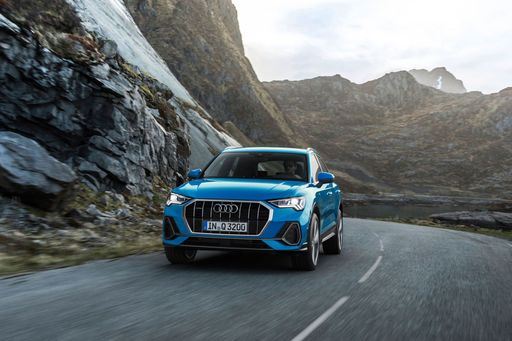
Audi Q3
Audi Q3
The Audi Q3 feels like a grown-up compact SUV with premium polish and city-friendly agility, the sort of car that makes weekend escapes and daily commutes equally satisfying. Inside, you get quality materials and smart packaging that keep things practical without skimping on style, so it’s an easy pick for buyers who want luxury without the drama.
details
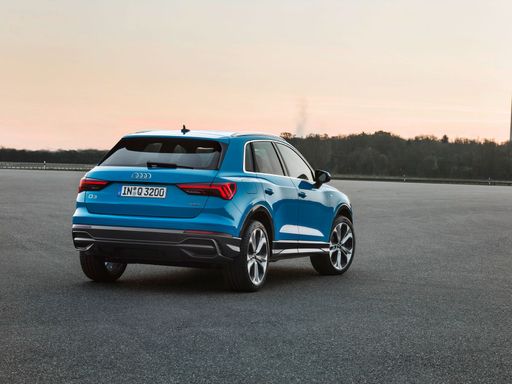
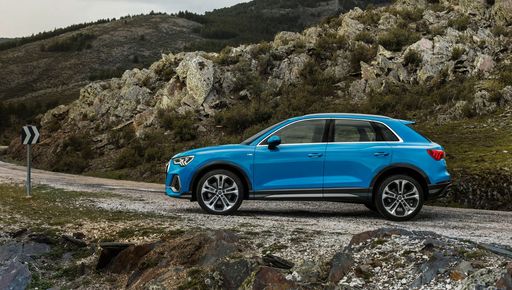
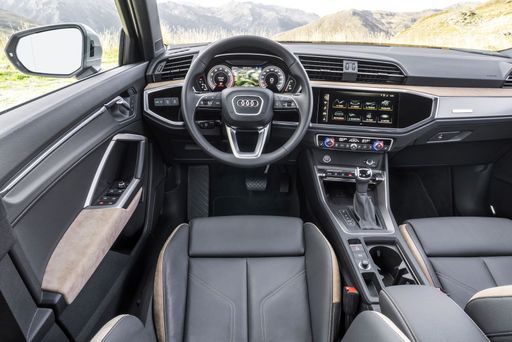
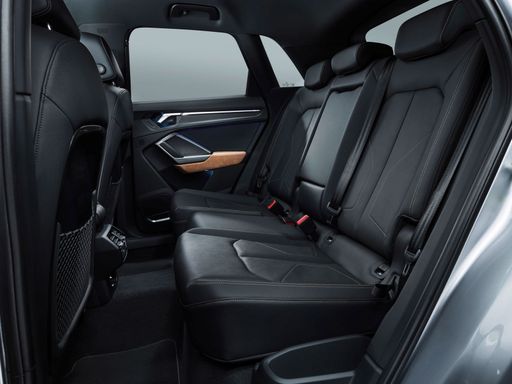
SEAT Ateca
The SEAT Ateca blends sharp, purposeful styling with practical space that turns everyday errands into something a bit more enjoyable. It’s poised and engaging to drive for its segment, offers solid value, and has just enough personality to make you smile on the school run.
details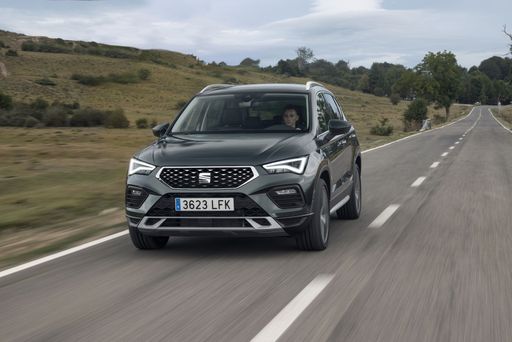
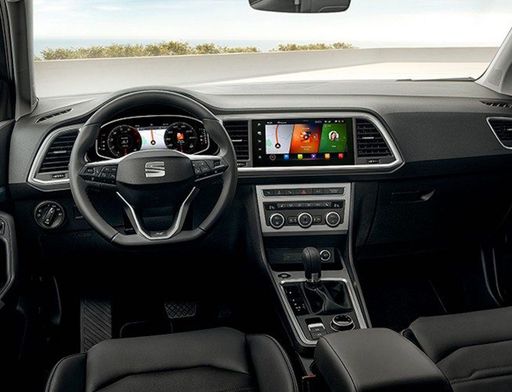
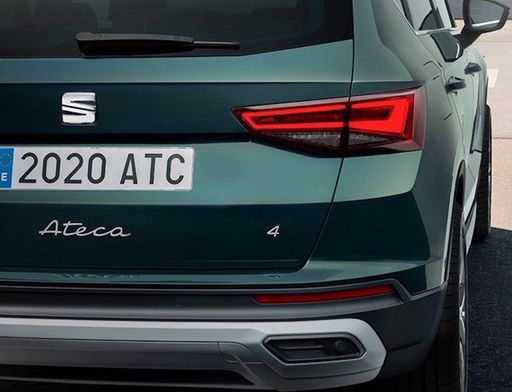
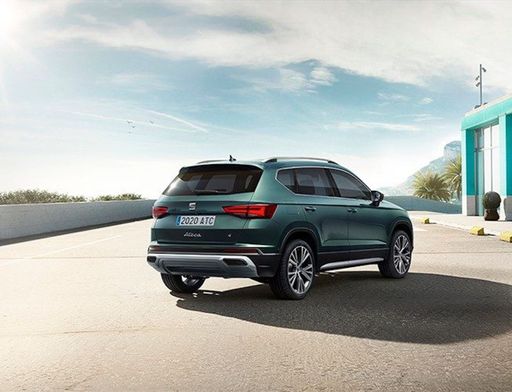
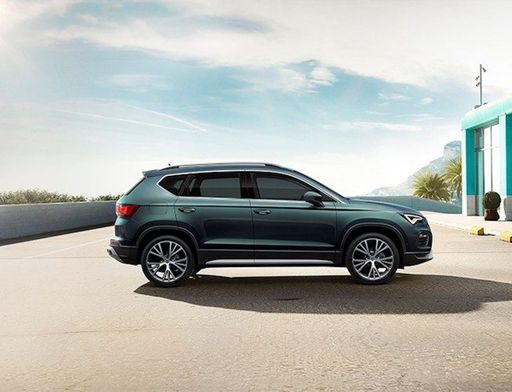
Costs and Consumption |
|
|---|---|
|
Price
38200 - 52900 £
|
Price
25100 - 36900 £
|
|
Consumption L/100km
1.7 - 8.6 L
|
Consumption L/100km
4.9 - 6.4 L
|
|
Consumption kWh/100km
-
|
Consumption kWh/100km
-
|
|
Electric Range
118 - 119 km
|
Electric Range
-
|
|
Battery Capacity
19.70 kWh
|
Battery Capacity
-
|
|
co2
39 - 195 g/km
|
co2
129 - 144 g/km
|
|
Fuel tank capacity
45 - 60 L
|
Fuel tank capacity
-
|
Dimensions and Body |
|
|---|---|
|
Body Type
SUV
|
Body Type
SUV
|
|
Seats
5
|
Seats
5
|
|
Doors
5
|
Doors
-
|
|
Curb weight
1635 - 1900 kg
|
Curb weight
1345 - 1514 kg
|
|
Trunk capacity
375 - 488 L
|
Trunk capacity
510 L
|
|
Length
4531 mm
|
Length
-
|
|
Width
1859 mm
|
Width
1841 mm
|
|
Height
1559 - 1601 mm
|
Height
-
|
|
Max trunk capacity
1196 - 1386 L
|
Max trunk capacity
-
|
|
Payload
505 - 535 kg
|
Payload
516 - 525 kg
|
Engine and Performance |
|
|---|---|
|
Engine Type
Petrol MHEV, Petrol, Plugin Hybrid, Diesel
|
Engine Type
Petrol, Diesel
|
|
Transmission
Automatic
|
Transmission
Manuel, Automatic
|
|
Transmission Detail
Dual-Clutch Automatic
|
Transmission Detail
Manual Gearbox, Dual-Clutch Automatic
|
|
Drive Type
Front-Wheel Drive, All-Wheel Drive
|
Drive Type
Front-Wheel Drive
|
|
Power HP
150 - 272 HP
|
Power HP
116 - 150 HP
|
|
Acceleration 0-100km/h
5.7 - 9.2 s
|
Acceleration 0-100km/h
9 - 11 s
|
|
Max Speed
208 - 240 km/h
|
Max Speed
-
|
|
Torque
250 - 400 Nm
|
Torque
200 - 360 Nm
|
|
Number of Cylinders
4
|
Number of Cylinders
3 - 4
|
|
Power kW
110 - 200 kW
|
Power kW
85 - 110 kW
|
|
Engine capacity
1498 - 1984 cm3
|
Engine capacity
999 - 1968 cm3
|
General |
|
|---|---|
|
Model Year
2025
|
Model Year
2025
|
|
CO2 Efficiency Class
E, G, B
|
CO2 Efficiency Class
E, D
|
|
Brand
Audi
|
Brand
SEAT
|
Is the Audi Q3 offered with different drivetrains?
The Audi Q3 is available as Front-Wheel Drive or All-Wheel Drive.
